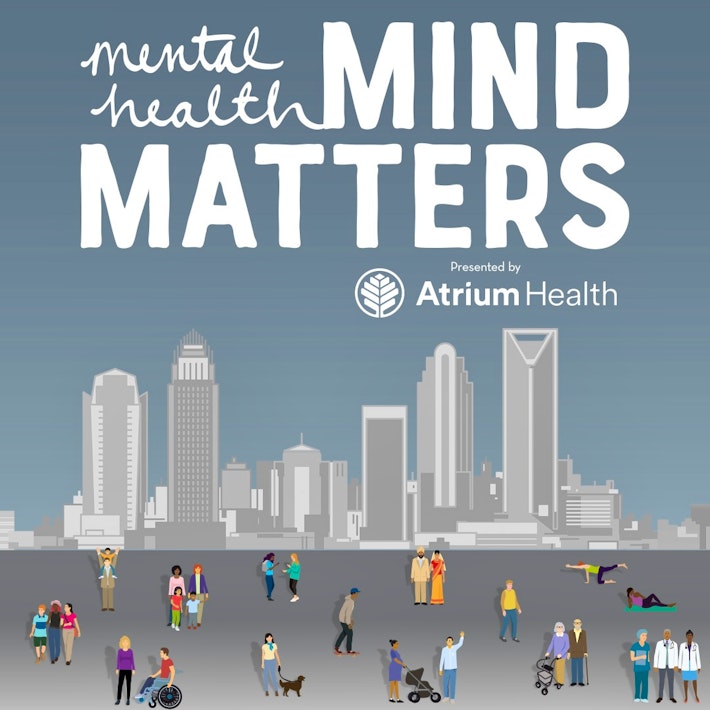Focusing on Mental Health and Self-Care During COVID-19
Focusing on Mental Health and Self-Care During COVID-19
Discovery Place Science
Mental health affects us all. As many people are feeling burnout or fatigue from the COVID-19 pandemic, scientists say that the effects of the pandemic may last for years, including the effects on mental health. The pandemic has shed light on the importance of mental health and self-care.
At Discovery Place Science, our featured exhibition Mental Health: MIND MATTERS explores the science of mental health through interactive activities for all ages. Presented in Charlotte by Atrium Health, MIND MATTERS aims to help raise mental health awareness, provide learning opportunities and offer a safe space for mindfulness, reflection and important conversations.
COVID-19 Effects
Worries about the virus, changes in daily routines, financial pressures and social isolation are all factors that have influenced mental health during the pandemic.
Studies have shown a major increase in the number of U.S. adults who have reported symptoms of stress, anxiety, depression and insomnia during the pandemic, compared with surveys before the pandemic. These studies have also shown an increase in substance use to cope with fears and anxieties stemming from the pandemic.
According to these studies, those at higher risk of mental distress from the pandemic include females, young people (<40 years of age), certain race/ethnicity, pre-existing chronic/psychiatric illness, unemployment status, student status and frequent exposure to social media/news concerning COVID-19.

Adult Mental Health
While males and females are both at risk of mental illness, historically, the prevalence in mental illness in men is lower than women. Men are also less likely to have received mental health treatment. That is not the case with the COVID-19 pandemic.
As of September 2020, men sought mental health care at a higher rate than women with year-over-year visits up 5.5 times. The total number of monthly virtual mental health care visits in 2020 was up 79% since January 2020.
While men reported lower rates of anxiety compared to women, they did report higher rates of depressive symptoms. Symptoms of depression in men tend to include aggression, engaging in high-risk activities and substance use.
Health Care Workers
Health care workers have been on the frontline of the pandemic experiencing conditions that have been compared to a war zone. From June – September 2020, Mental Health America hosted a survey to listen to the experience of health care workers.
They found that 93% of health care workers were experiencing stress, 86% reported experiencing anxiety, 76% reported exhaustion and burnout and 75% said they were overwhelmed. Click here to learn more about their findings.
Self-Care Tips
Here are a few tips to take care of your mental health:
- Get enough sleep. Go to bed and wake up at the same time each day.
- Eat healthy, regular meals and stay hydrated. A balanced diet and plenty of water can improve your energy and focus throughout the day.
- Get regular exercise. Just 30 minutes of exercise each day can boost your mood and improve your mental health.
- Keep a regular routine. In addition to sticking to a regular routine for bedtime, mealtimes and exercise, keep a consistent schedule for bathing and getting dressed and work or study schedules. Also set aside time for activities you enjoy. This predictability can make you feel more in control.
- Stay connected. Find time each day to make social connections to avoid feelings of loneliness and isolation.
- Set goals and priorities. Set reasonable goals each day and outline steps you can take to reach those goals. Give yourself credit for every step in the right direction, no matter how small.
- Practice gratitude. Remind yourself of things you are grateful for instead of dwelling on the bad.
- Get help when you need it. If you have concerns or if you experience worsening mental health symptoms, ask for help when you need it and be honest about how you're doing.
- Contact a loved one
- Contact a spiritual leader
- Contact your employee assistance program, if your employer has one
- Call your primary health care provider or mental health professional
- Contact organizations such as the National Alliance on Mental Illness (NAMI) or the Substance Abuse and Mental Health Services Administration (SAMHSA)
Visit Mental Health: MIND MATTERS at Discovery Place Science before April 10, 2022, to continue the discussion on mental health.





